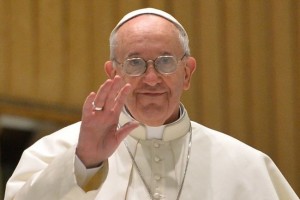A Way Through Covid 19: Blessed is the One Who Comes
When I first heard Sir Karl Jenkins’ composition Benedictus, the title alone, for me, evoked something very deep from my experience of the Mass and showed me a way through the Covid-19 pandemic.This Mass was a memorial for those who died in the Kosovo conflict (1998-1999). It is deeply moving. It contains a deep resonance of the passion for life in the face of death and the triumph of hope.It is not an easy path but it is the path of the cross and the resurrection.It is the path of discipleship.
When I researched it I found an interview with Sir Karl Jenkins the composer. He didn’t experience any real type of other worldly motivation except to work systematically, generate ideas, and then go with his intuition.He also speaks of how he put it together and how it speaks to people particularly to those who are dying or grieving the loss of a loved one.
The Benedictus – blessed is the one who comes in the name of the Lord, is the response after the preface or opening of the Eucharistic prayer.
The preface announces and anticipates the death and resurrection of the Lord in our act of remembrance and Thanksgiving (Eucharist in Greek). We remember, we celebrate, we believe. It is the sacrifice of the innocent transformed by the coming of the Lord. War, hunger, plague are the slaughter of the innocent and innocence itself. Who stands for the fallen? How does the senseless make sense?
The question is not resolved except to say that the one who comes in the name of the Lord – like Christ dies in hope despite the throes of torment and despair.
During my brief introduction to hospital ministry, Fr. Eli Salmon, one of my preceptors and I were discussing the ICU and pastoral accompaniment. As Catholics we often think of hospital chaplaincy as the administration of the sacraments. Which is true since they are rites of peace and healing, but they are part of something deeper.
Being with the sick, the dying, or those returning to the rigors of everyday life is a ministry of hope born of faith that ushers us into that communion which is love. Fr. Eli defined his mission in the ICU as being a support for the patient’s hope in the face of death. It is the prevention of despair.
The primary mission of discipleship is to be that presence of hope – to be the one who comes not with answers, not with solutions, nor the daggers of glib religious slogans.
The Lord is with us through our presence and witness to the pandemic and its victims. As challenging and frightening as these times are, as difficult as the news is to watch, and as absurd as the evil whimsy of Covid-19 is as it grazes some and destroys others, we are the Lord God’s presence. Even as our churches are closed and the altar bare, the Eucharist of our hearts continues. We remember. We give thanks. We await the resurrection and bring forth its dawn.

















 Like many of you, I received a chain email from a friend about the moral imperative to support pro-life candidates. The email was basically an endorsement of Donald Trump including the statement that no Catholic could in good conscience support Hillary Clinton.
Like many of you, I received a chain email from a friend about the moral imperative to support pro-life candidates. The email was basically an endorsement of Donald Trump including the statement that no Catholic could in good conscience support Hillary Clinton.











